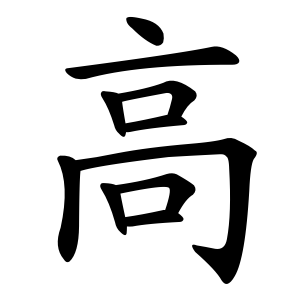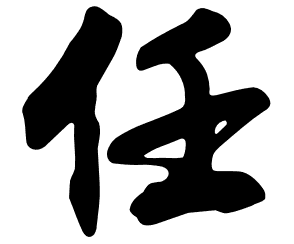
Gao Xingjian is a Chinese émigré and later French naturalized novelist, playwright, critic, painter, photographer, film director, and translator who in 2000 was awarded the Nobel Prize in Literature "for an oeuvre of universal validity, bitter insights and linguistic ingenuity." He is also a noted translator, screenwriter, stage director, and a celebrated painter.
Gao Yao is a former Chinese football player who was able to play in both midfield or defence. He was known as a 'One club man' as he spent his whole career with Shandong Luneng playing in the Chinese Super League, while internationally he was also included in the Chinese team that was a participant at the 2002 FIFA World Cup.

Gao Hongbo is a Chinese professional football manager and former player who played as a striker. He previously managed the China national football team from 2009 to 2011, and in 2016. Appointed in May 2009, Gao became the youngest man to take the helm in 30 years. He currently serves as the a vice-chairman of the Chinese Football Association.

Gao Huan, Xianbei name Heliuhun (賀六渾), formally Prince Xianwu of Qi (齊獻武王), later further formally honored by Northern Qi initially as Emperor Xianwu (獻武皇帝), then as Emperor Shenwu (神武皇帝) with the temple name Gaozu (高祖), was the paramount general and a minister of the Xianbei-led Northern Wei dynasty and its branch successor state Eastern Wei dynasty. Although he was an ethnic Han, Gao was deeply influenced by Xianbei culture and was often considered more Xianbei than Han by his contemporaries. During his career, he and his family became firmly in control of the Eastern Wei court. Eventually, in 550, his son Gao Yang forced Emperor Xiaojing of Eastern Wei to yield the throne to him, establishing the Gao clan as the imperial house of a new Northern Qi dynasty.

Gao is an East Asian surname of Chinese origin that can be literally translated as "high" or "tall". There are approximately 17 million living people with this surname. Some places, such as Taiwan, usually romanise this family name into "Kao". In Hong Kong, it is romanized to "Ko". In Macau, it is romanized to "Kou". In English, it is romanized to "Kauh". In 2019 it was the 19th most common surname in Mainland China. The Korean surname, "Ko" or "Koh", is derived from and written with the same Chinese character (高).
Gao Hong is a Chinese former footballer who played as a goalkeeper. She competed in the 1996 Summer Olympics and in the 2000 Summer Olympics. She also played professionally for the New York Power of the Women's United Soccer Association in 2001 and 2002.
Chen Hong is the name of:
The Xiling Seal Art Society is a Chinese arts organisation based in Hangzhou, Zhejiang Province, PRC. It was founded in 1904 but, with antecedents dating back to the Ming and Qing dynasties, is one of China's most important traditional stone seal engraving associations.
Events in the year 1940 in China.

Lú is the pinyin romanization of the Chinese surname written 盧 in traditional character and 卢 in simplified character. It is also spelled Lo or Loh according to the Cantonese pronunciation. Lu 盧 is the 52nd most common surname in China, shared by 5.6 million people, or 0.475% of the Chinese population as of 2002. It is especially common in Guangdong, Guangxi, Hainan, and Hebei provinces. Lu 盧 is listed 167th in the Song dynasty classic text Hundred Family Surnames.

Rén is the Mandarin pinyin romanisation of the Chinese surname written 任 in Chinese script. It is romanised as Jen in Wade–Giles, and Yam or Yum in Cantonese. It is listed 58th in the Song dynasty classic text Hundred Family Surnames. As of 2008, it is the 59th most common surname in China, shared by 4.2 million people. In 2019 it was the 49th most common surname in Mainland China.

Zhuo 224th most common surname in China, shared by 360,000 people (2008). In the Wade–Giles system of romanization, it is romanized as Cho, which is commonly used in Taiwan. The surname is listed 277th in the Song dynasty classic text Hundred Family Surnames.

Hong Kong Satellite Television is a non-domestic satellite television network consisting of two Mandarin-language channels, owned by Hong Kong Satellite TV International Media Group (HKS), based in Hong Kong. HKSTV was available in Hong Kong via Now TV and Cable TV Hong Kong between 2011 and 2014. It is now available over the internet in Taiwan via 5TV and also in mainland China via CNTV. The HKSTV signal can be picked up via satellite in over 140 countries world-wide. HKSTV distinguishes itself from other channels by using a mix of foreign and Chinese television hosts.
Qian Hong was a former Chinese badminton player. She was part of the national team that clinched an Uber Cup in 1998 Hong Kong. In the individual events, she participated at the 1994 World Junior Championships clinched a gold medal in the mixed doubles event partnered with Zhang Wei, and a silver medal in the girls' doubles event with Wang Li. Teamed-up with Liu Lu, she won the women's doubles title at the 1996 Scottish Open, and 1997 Swedish Open. At the 1997 Asian Championships, she won two silver medals in the mixed and women's doubles event, and also settled for a bronze medal at the World Championships in the women's doubles event.
Gao Heng was an emperor of the Northern Qi dynasty of China.

Kao Erh-hsuan, better known by his stage name OSN, is a Taiwanese rapper and singer. Gao's music is characterized by his sentimental hip hop style and use of both Mandarin and English lyrics. Gao is represented by SKR Presents, a record label by music producer Skot Suyama.
Gao Hongbin, a native of Beijing, was an official of the People's Republic of China.
Gao Hongbin may refer to:
Gao Hong, a native of Zongyang, Anhui Province, was a Chinese politician.
Gao Hong, originally from Jingyang, Shaanxi, was an analytical chemist, educator, and a fellow of the Chinese Academy of Sciences.








